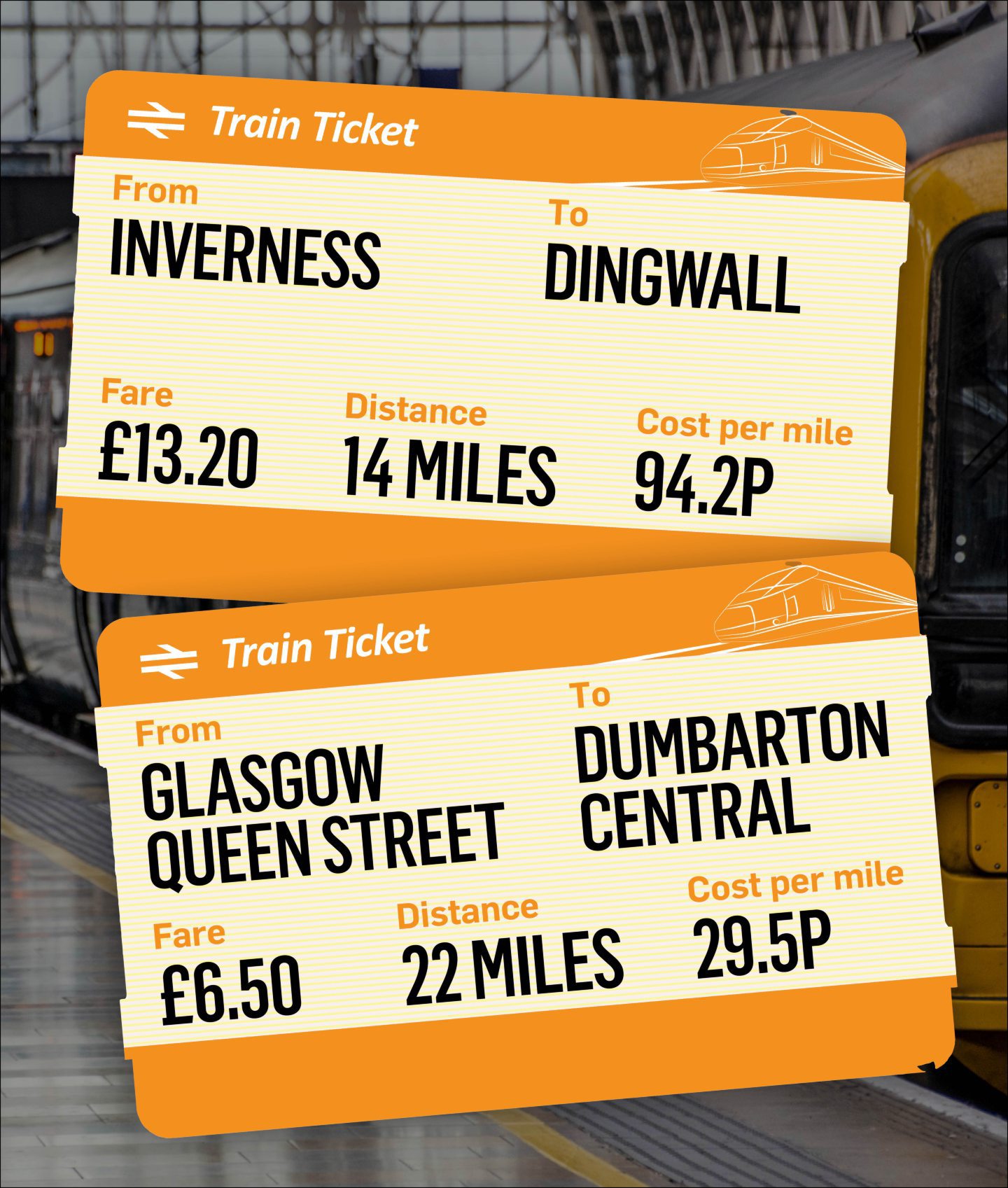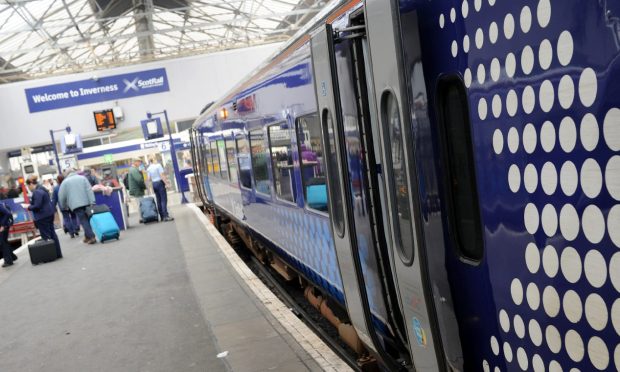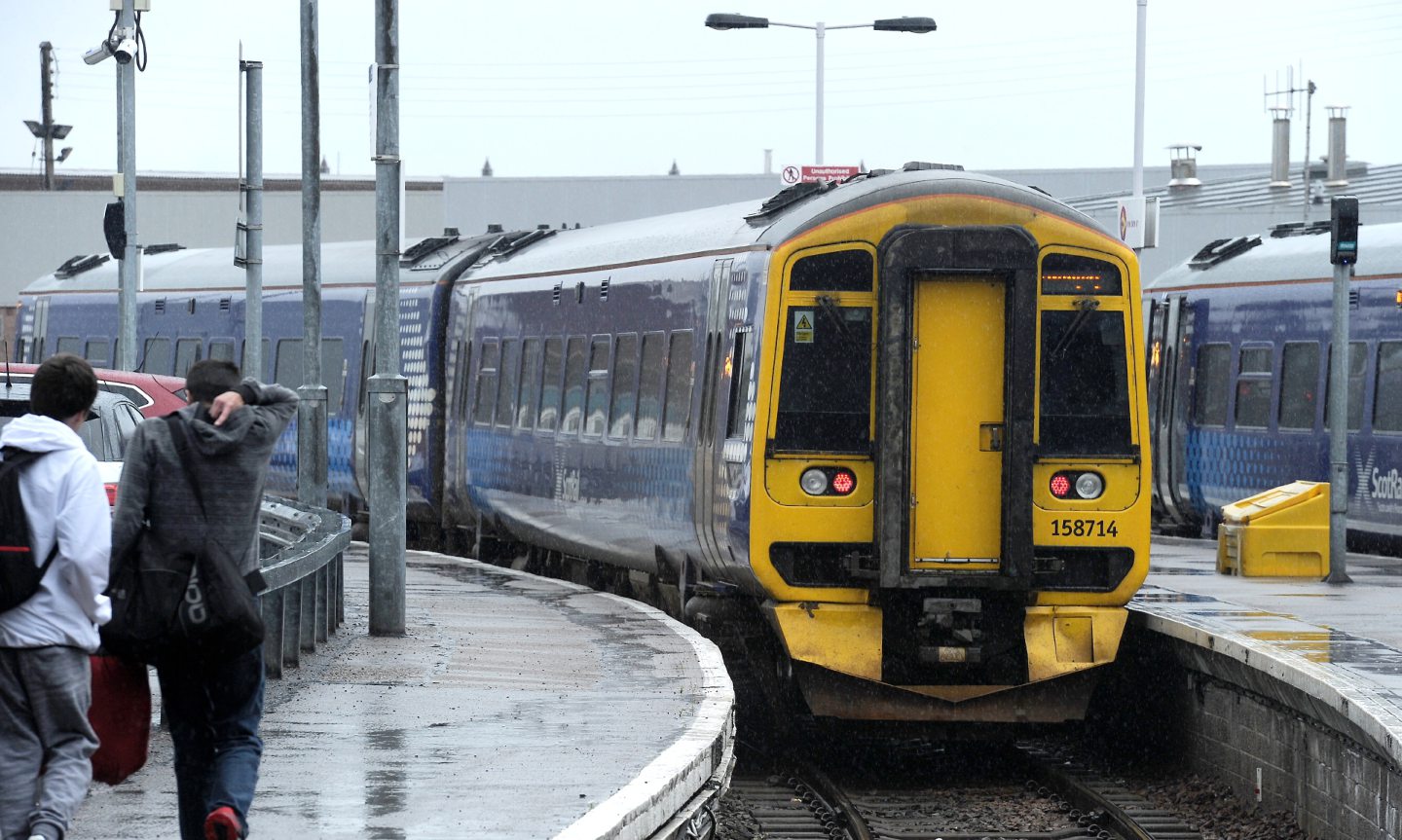ScotRail fares from Inverness have been branded “ludicrous” after it was revealed they are more than double those in the Central Belt.
The Press and Journal compared prices of similar journeys from the Highland capital with those from Edinburgh and Glasgow.
The figures revealed trips of roughly the same distance can be more than double the cost in the North than further south.
It means Inverness commuters are still paying more on ScotRail fares than those in the Central Belt, even if they pay to use the discount from the Highland railcard.
Campaigners have called for an overhaul of the fares structure to ensure customers in the north are not priced out of rail travel.
ScotRail has admitted there is “no direct relationship” between its fares and length of journey – explaining the current pricing structure was introduced prior to the disbandment of British Rail in 1997.
How much extra does it cost for ScotRail trains from Inverness?
The Press and Journal compared the prices of walk-up day return fares for journeys of similar lengths.
The shortest driving distance between the stations was used to calculate the cost commuters are paying per mile.
And the figures revealed ScotRail fares from Inverness are more expensive per mile than trips of a similar length in the Central Belt.
How ScotRail fares from Inverness compare to Central Belt
- Inverness to Dingwall: £13.20 for 14 miles = 94.2p per mile
- Inverness to Carrbridge: £14.70 for 25 miles = 58.8p per mile
- Edinburgh to Falkirk High: £12.10 for 26 miles = 46.5p per mile
- Edinburgh to Dunfermline City: £8.20 for 18 miles = 45.6p per mile
- Inverness to Forres: £11.50 for 26 miles = 44.2p per mile
- Glasgow Central to Kilmarnock: £8.80 for 23 miles = 38.2p per mile
- Glasgow Central to Motherwell: £6.10 for 16 miles = 38.1p per mile
- Edinburgh to North Berwick: £8.80 for 27 miles = 32.6p per mile
- Glasgow Central to Dumbarton Central: £6.50 for 22 miles = 29.5 per mile
‘Train fares are ludicrous’
Campaign group Friends of the Far North Line was established in 1994 to press for better services between Inverness, Ross-shire, Sutherland and Caithness.
Convener Ian Budd told the Press and Journal a fairer fares structure needs to be established to ensure Highland communities are not penalised.
He said: “The fares structure at the moment is completely ludicrous and needs to be much simpler. As a rail campaign group we have advocated for a per mile or kilometre charge.
“They use that sort of system in Japan and it works very well. They have higher charges there for more comfortable trains, or something similar, but otherwise a per mile charge is as complex as it gets.”
Residents in the north are eligible to buy a Highland railcard for an annual fee of £15, which gives access to half price fares.

However, it is only eligible on routes from Inverness to Wick, Thurso or Kyle of Lochalsh or from Mallaig, Fort William and Oban to Glasgow.
ScotRail did not comment on whether the scheme could be extended to other routes from Inverness, including to Perth or Elgin.
Mr Budd added: “Fares like this actually make a bit of a mockery out of the Highland railcard because even with the discount it only brings the fares down to roughly in line with Edinburgh and Glasgow.
“I’m absolutely sure the fares have an impact on how much the trains are used in the Inverness area.”
ScotRail: ‘No relationship between fares and miles travelled’
ScotRail has told the Press and Journal its fares are not set on a per mile basis with the structure dating back to before the network was privatised in 1997.
After that, different agencies had control of setting prices, including the Strathclyde Passenger Transport Executive, which had a policy of maintaining low rail fares.
Meanwhile, there was also some regulation in the Edinburgh area there were also some regulations to keep fares low.
After ScotRail was nationalised in 2022 power over rail fares has rested completely with Transport Scotland with prices only increasing by a uniform inflationary amount across the network every year.
Claire Dickie, ScotRail’s commercial director, said: “The fares in Scotland have never been set on a per mile basis, and while there are some differences in certain parts of the country, there is no direct relationship between fares and miles travelled.
“The revenue generated from fares is essential to allowing ScotRail to run a service which is safe, reliable, and green, and reduce the burden on the public purse but we know that what customers want is a simple, affordable, and easy to understand fare system, and we are doing everything we can to deliver that.
“The current off-peak all-day trial is an example of a bold initiative that is reducing the cost of rail travel, and encouraging more people to travel by train.”
Read more about ScotRail services in the Highlands
- Hourly trains were promised from Inverness and Elgin to Aberdeen 15 years ago: What happened to them?
- ScotRail fare rise: How much journeys across the north, north-east and west coast now cost
- Is Inverness Airport’s new train station worth the 25-year wait?



Conversation